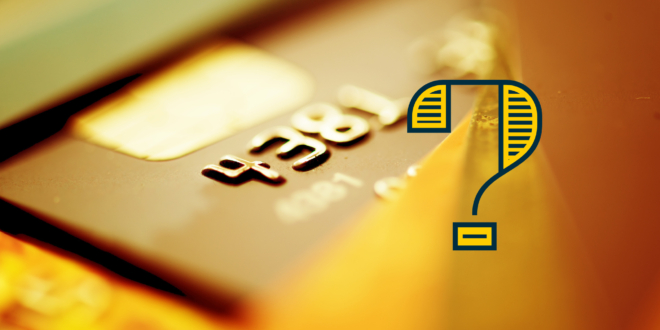By Beth Robertson, Managing Director of Keynova Group
The question of what consumers want from credit card issuers gnaws at card executives, eager to capitalize on the growing use of credit products in an inflationary environment, fending off challenges from non-traditional sources of consumer credit and securing a larger share of targeted segment spending.
To meet changing consumer demands, issuers are moving beyond the table stakes of competitive annual fees, APRs and baseline rewards and turning to refreshed purchasing structures, personalized digital servicing, enhanced tools to protect cardholder privacy and security, and highly-tailored rewards programs to entice today’s evolving market.
BNPL – Threat and opportunity for issuers

One innovation that impacts purchase activity and account servicing is the growing availability of buy now pay later (BNPL) alternatives. Shoppers have flocked to BNPL options offered at the point of sale (POS) by fintechs like Affirm, Klarna, or Afterpay. These firms provide short-term loans that enable consumers to set up a fixed payment plan for selected purchases, typically with a small associated fee for splitting the purchase amount into fixed monthly installment payments.
Yet card issuers offering BNPL may provide consumers a better option. Keynova Group recently found half of the ten leading US credit card issuers offering BNPL plans offer several advantages over most fintech solutions – primarily, access to purchase protections and transaction dispute capabilities.
In addition, cardholders can usually continue to earn card-based rewards associated with their BNPL purchase. And because a cardholder is already approved for a specific credit limit, there is no need for a new loan or line application that might affect the user’s credit score. Plus, there is a known limit on spending to help consumers manage their budgets.
Most credit card BNPL programs are implemented post-purchase rather than at the point of sale, but this is changing. American Express offers BNPL at the point of purchase for Delta Airlines. Amex Travel and MasterCard have enlisted several merchants for a widespread rollout of BNPL to its merchant base. Visa is also investigating POS deployment. These options will bring card advantages to the point of purchase, making cards a pre-approved installment alternative for the bulk of the consumer market.
Digital servicing tools are key differentiators

As labor shortages and the pandemic reduced the ranks of call center agents, access to an array of personalized and useful digital self-servicing tools is a critical competitive factor. The list of actions consumers can take on their own using an issuer’s mobile app or website continues to expand.
Far more than simply a means to monitor transaction activity or confirm payment receipt, the best digital channel providers enable cardholders to self-service, dispute transactions, report their cards lost or stolen and order a replacement card, request an increase to their credit limit, monitor merchant access to their card account data or learn how to load and use a digital wallet.
Issuers also rely more on digital assistants to efficiently respond to many of the requests a live agent might have previously addressed. As a result, digital assistants can reduce wait times and improve overall customer satisfaction since they can quickly resolve issues that don’t require human interaction. In addition, 30% of credit card issuers now offer truly intelligent virtual assistants with strong natural language capabilities and the ability to deliver personalized data and content, such as searching for transactions or notifying a cardholder of an irregular recurring charge.
When live agent assistance is needed, Keynova Group’s research shows that all ten leading US issuers offer live or hybrid chat options via their digital channels, half support agent co-browsing, and alternatives such as presenting wait times or offering callback via the digital channel are emerging quickly.
Enhanced privacy, security features in high demand

With no shortage of news about data breaches, consumers are also looking for credit card issuers to offer privacy and security features that differentiate their products and encourage secure transacting. Many issuers are adding Security Centers to their sites to assist cardholders in reviewing key indicators associated with access to their account and to conduct actions such as setting up customized alerts, adding additional authentication or SSN monitoring or toggling their card “on” and “off” for purchases if it is temporarily misplaced or lost.
Security Center tools can help cardholders monitor their credit bureau scores, set up identity theft protection, view and manage a list of merchants that store their payment information and manage third-party data-sharing access to their accounts. Security Centers at many banks, including Bank of America and Chase, also contain proactive ideas and suggested actions that customers can take to strengthen the security and privacy of their accounts and personal financial information.
Rewards programs are increasingly tailored, personalized
The pandemic’s effect on consumer spending has also encouraged credit card issuers to rethink rewards programs and to realign them with changing consumer priorities. This was most obvious for cards that offered travel and dining points – people simply stopped those activities, so the rewards were not as…rewarding.

But post-pandemic, consumers are more highly attuned than ever to rewards programs. They want more ways to earn cashback or points and redeem those points and cash for rewards that support their unique needs and preferences. Issuers are responding to these interests with an array of new card products and inventive benefits structures.
These include reward values of up to 17X on targeted spending, support for instant purchasing on application approval, mobile phone protection, one-to-one points transfer to other loyalty programs, and rich welcome bonus rewards for new cardholders. The Bilt Mastercard uniquely rewards monthly rent payments with no related fees.
Experiential rewards are a unique way issuers continue to distinguish their rewards programs, enabling cardholders to redeem points for invitation-only or VIP experiences, like wine tastings, concerts, or hard-to-get tickets to sporting events. Consumers increasingly rely on credit card rewards to offset rising costs for everyday expenses like groceries, gas, and home improvement projects, where cashback or targeted rewards offer value in a tight economy.
The unique post-pandemic landscape of rising costs, consumers’ increased digital proficiency and an ever-evolving roster of innovative digital services offer credit card issuers an opportunity to reimagine ways to differentiate their offerings and connect with cardholders. How issuers capitalize on these opportunities will help distinguish the credit card leaders of today and in the foreseeable future.
About the Author

Beth Robertson is a Managing Director of Keynova Group, a principal competitive intelligence source for digital financial services firms that publishes semi-annual Online and Mobile Insurance Scorecards. With over 30 years of experience, Beth has held leadership roles as a consultant and senior-level industry analyst with expertise in digital channels, payments and insurance.
Recent PaymentsNEXT news:
New Year’s Resolution: Learn the new language of payments in 2023








LET’S CONNECT